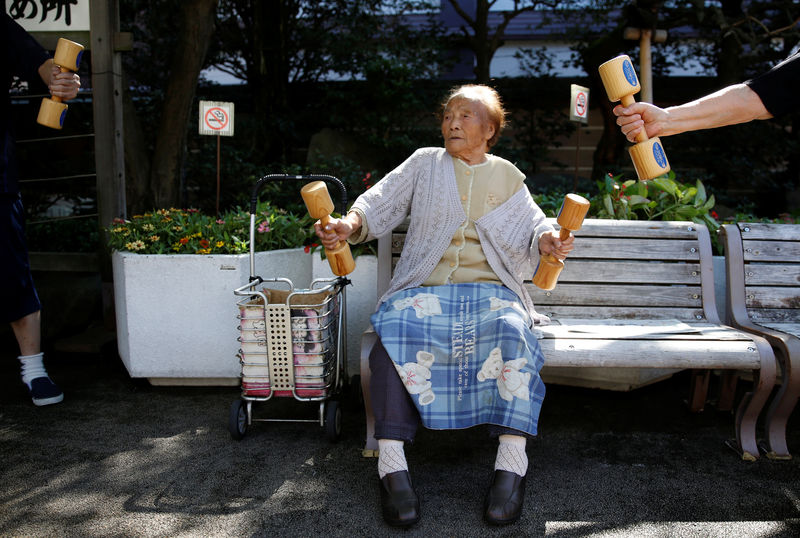TOKYO (Reuters) - Swinging dumbbells and chewing gum, several elderly Japanese gathered at a shrine in downtown Tokyo on Monday in sweltering temperatures, belying their age and importance in one of the world's most rapidly ageing societies.
The event to mark Respect for the Aged Day in Japan drew over 200 people in an exercise meant to increase their body strength and balance.
The exercise was more than just symbolic, as the number of people aged 65 and above has risen to a record high of 27.7 percent of Japan's population, government figures showed.
Significantly, those in this age category who still work has also hit a record, highlighting efforts by the public and private sectors to keep more elderly in the workforce longer to battle labour shortages.
The government estimates, released on Monday, are a stark reminder of the challenges posed by years of a declining birthrate, which is now at 1.45 births per woman. Many economists say a developed country needs a birthrate slightly above 2.0 to prevent its population from shrinking.
Japan has been struggling with a declining workforce for decades, and its elderly ratio is the highest among Group of Seven nations, followed by Italy at 23.0 percent, Germany at 21.5 percent, and France at 19.7 percent.
Official figures showed 35.14 million Japanese people were 65 or older, with 7.7 million of them holding down jobs. The number of people aged 90 or above also topped two million for the first time.
Natsu Naruse, a participant in the exercise who recently turned 100 years old, encapsulated Japan's challenge.
"I think my children would have trouble," if I lived longer, she said.
